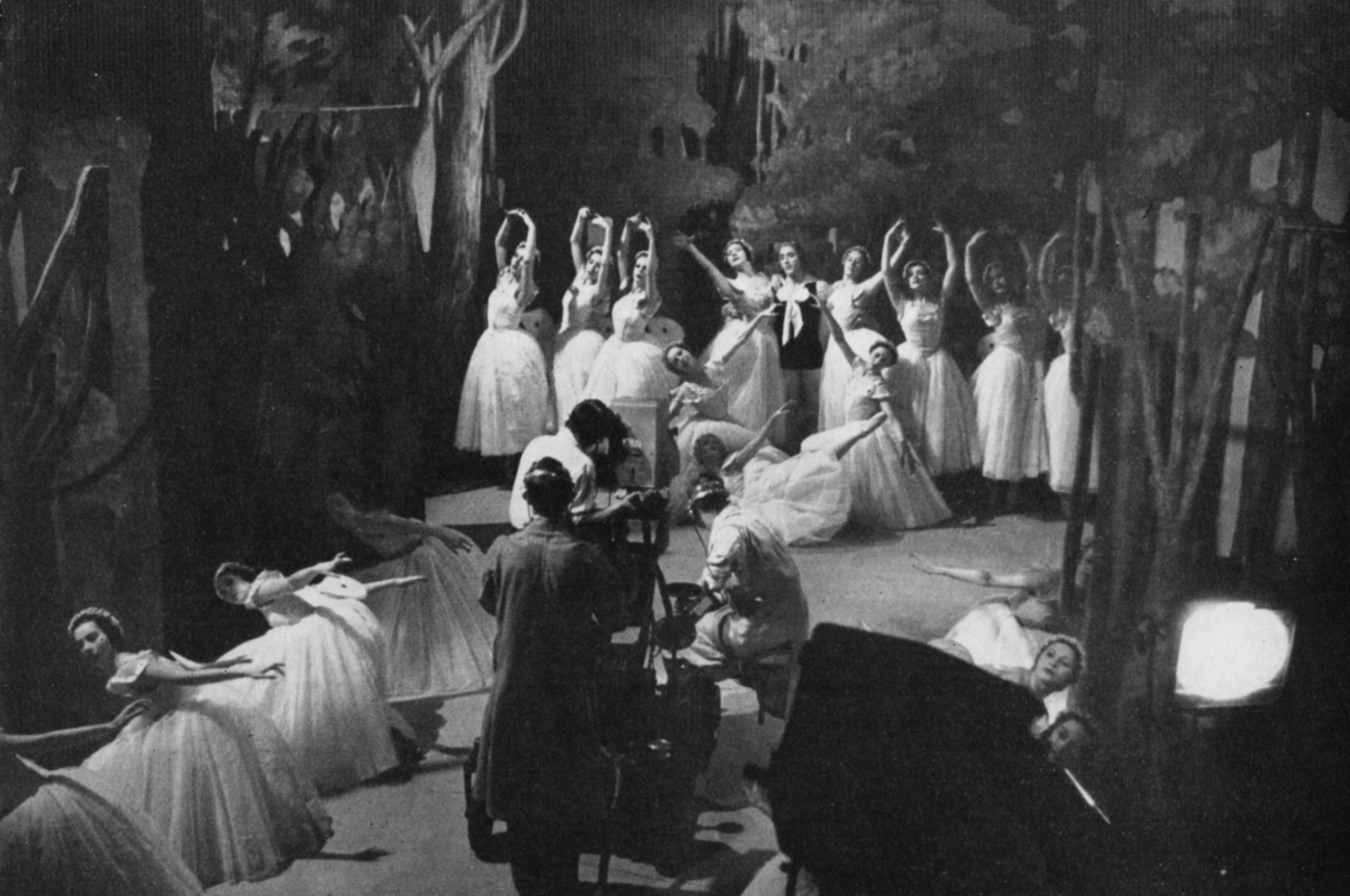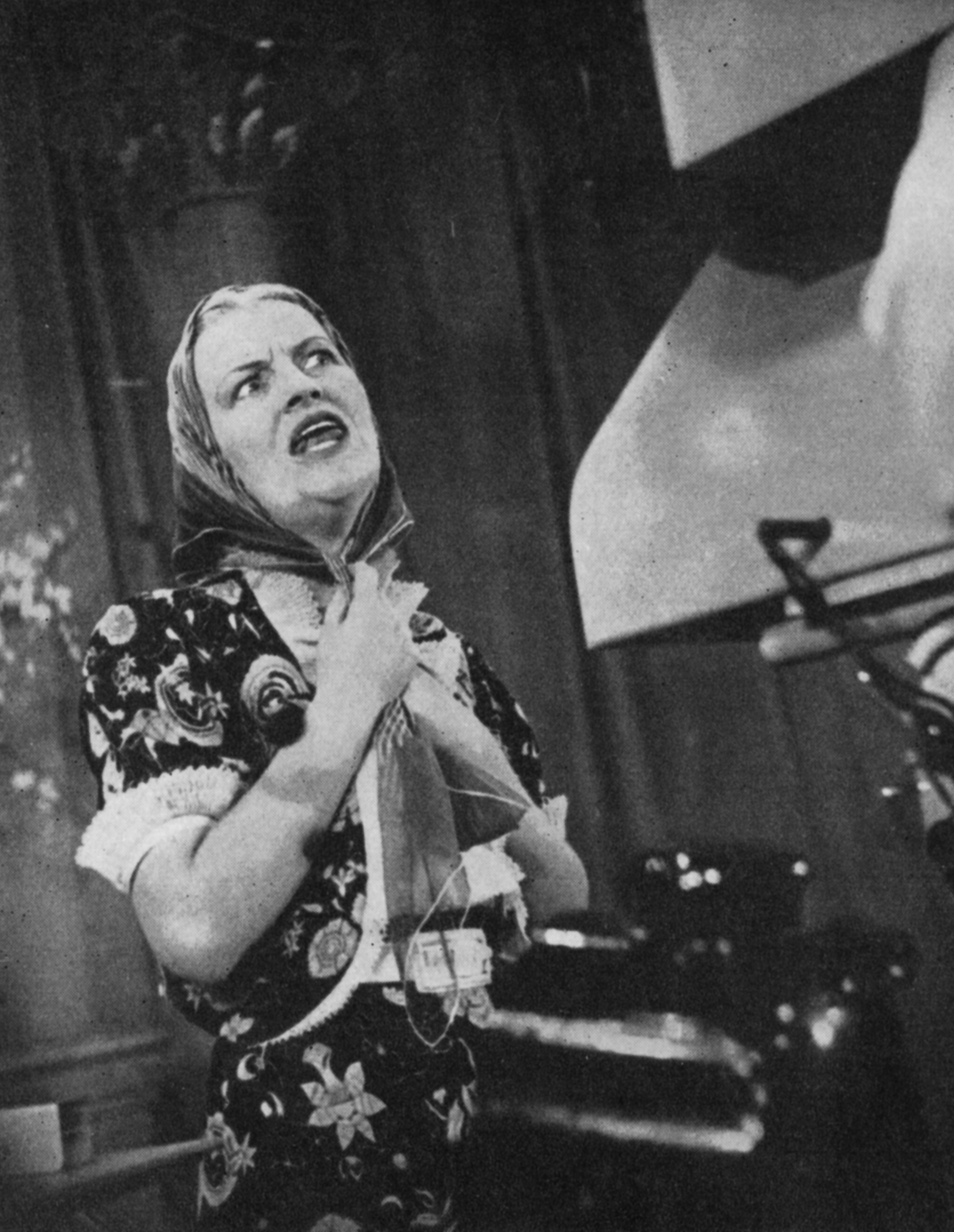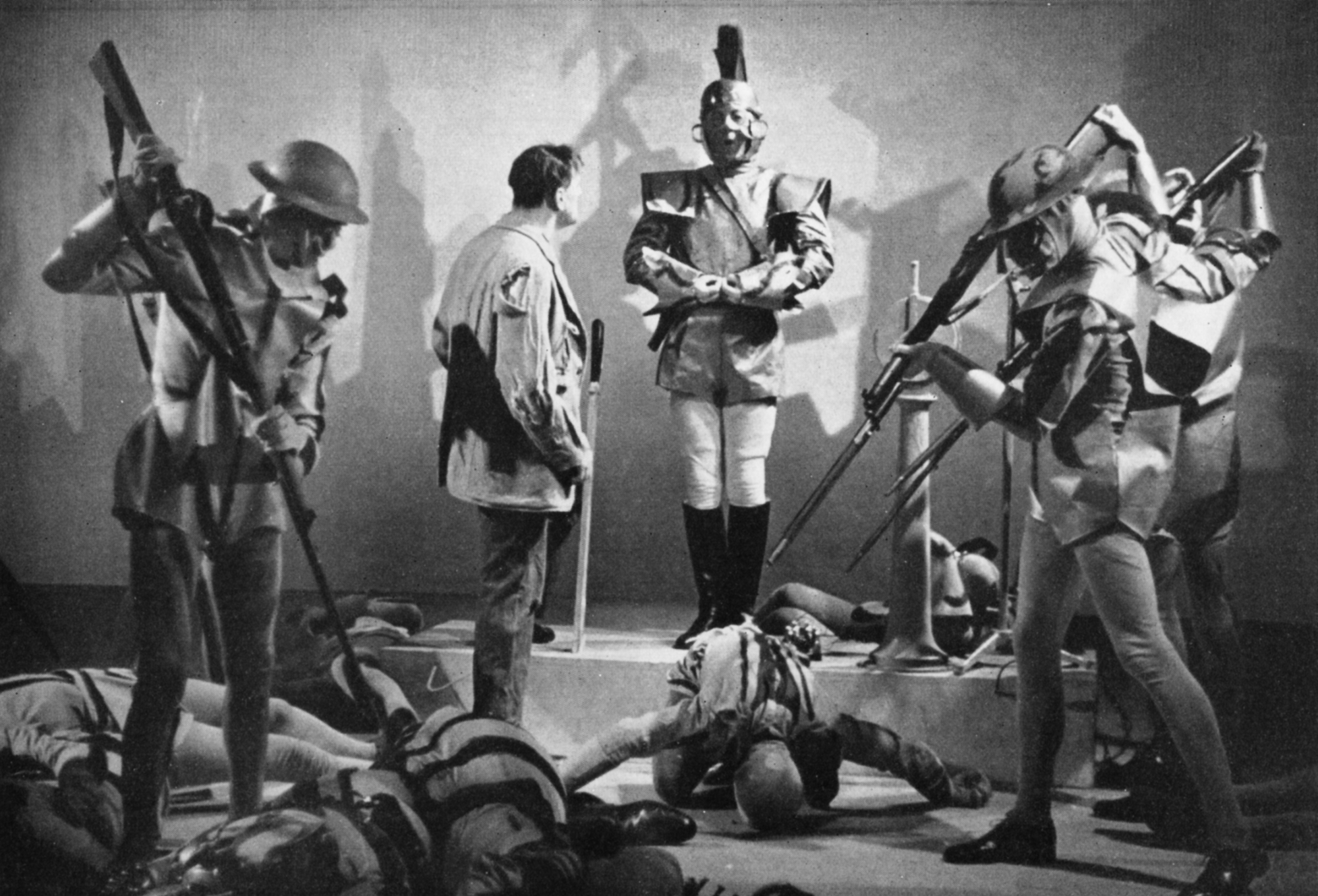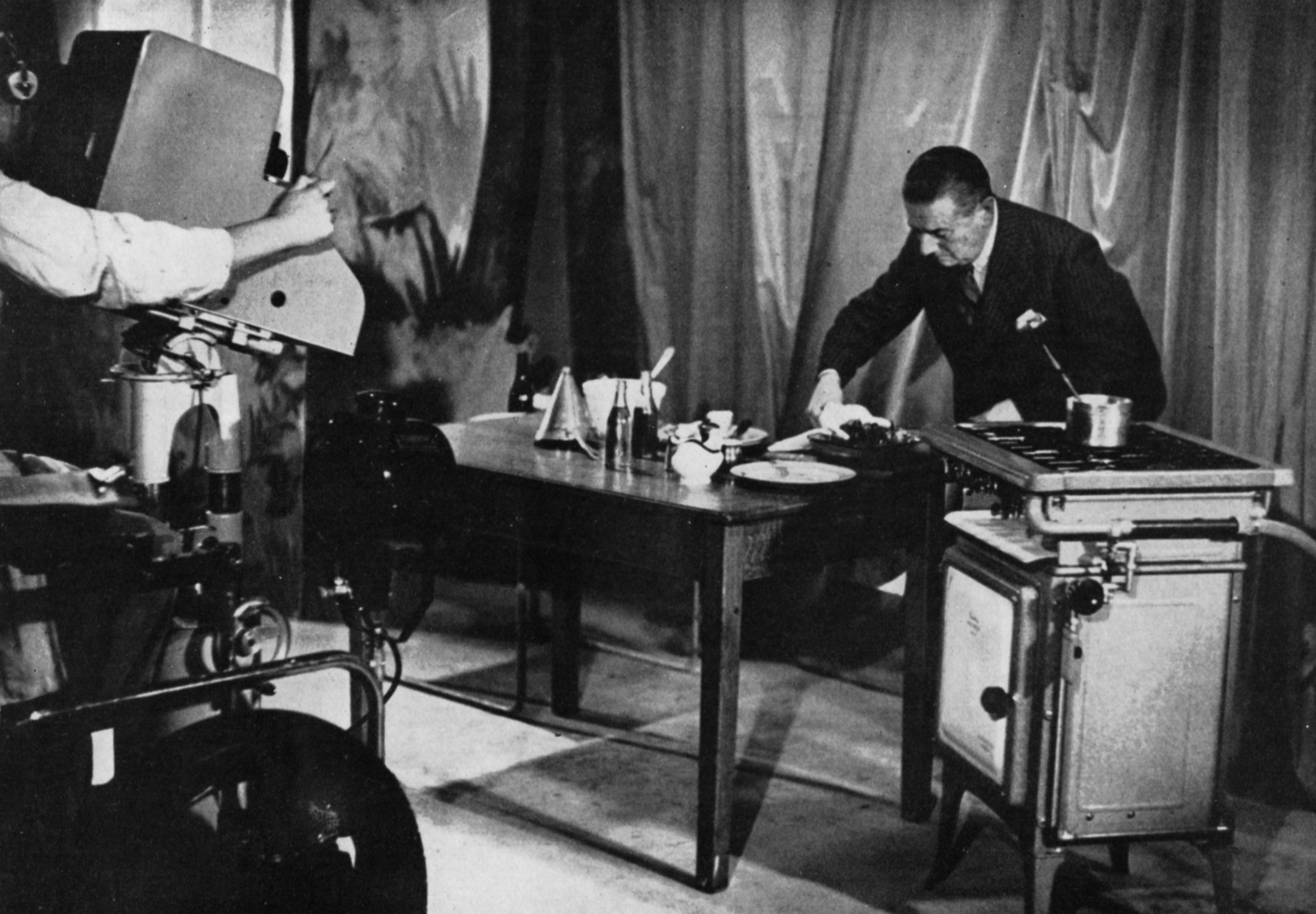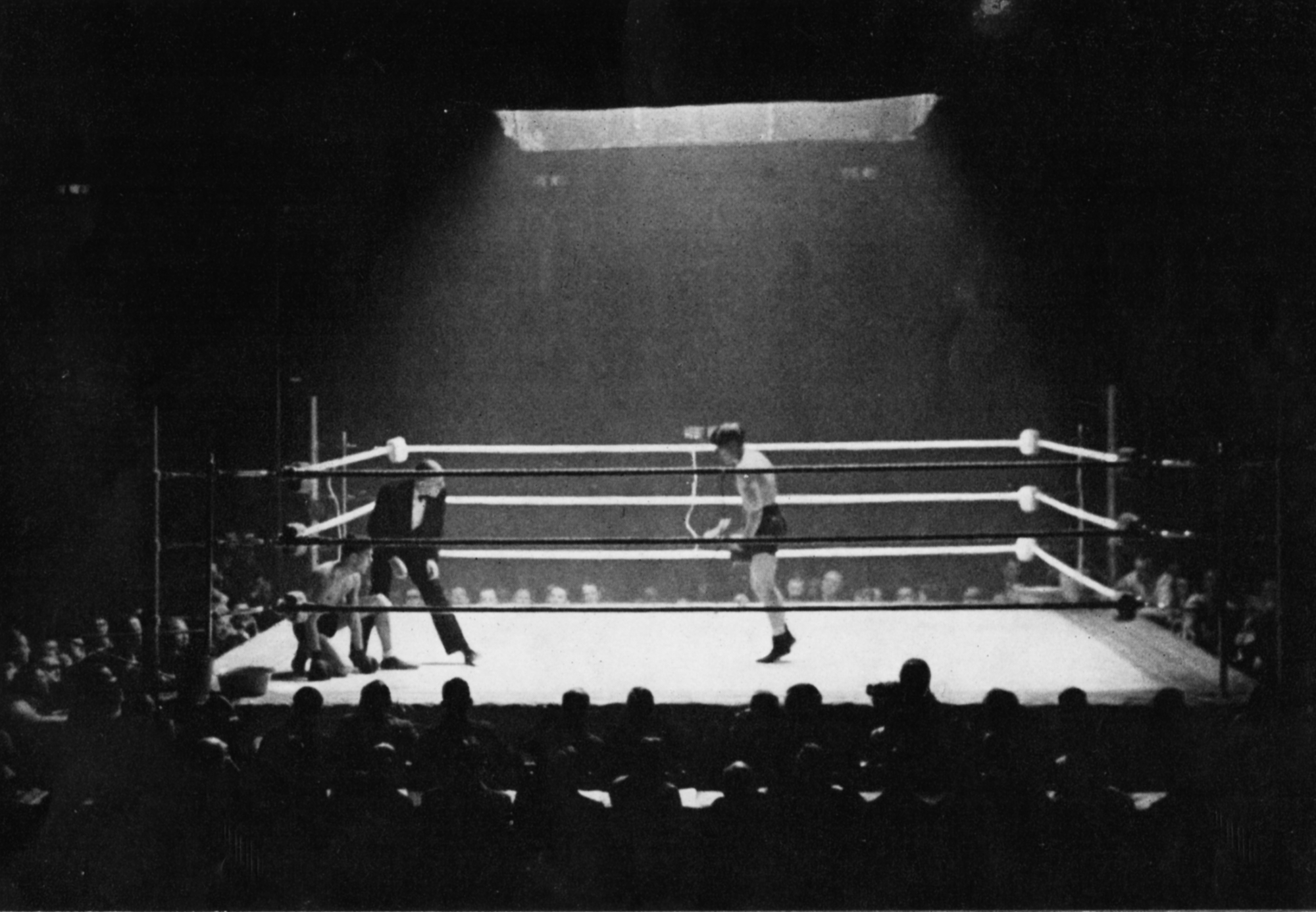The pre-war television programmes were the blueprint for the programmes of today. The small group of viewers in the London area could see ballet… Miss Gracie Fields… and full-length plays produced in the Alexandra Palace studios. They were the days of experiment and improvisation. The screen was small and the programmes did not make headlines. But in these early programmes lay the promise of today’s wide and still expanding television world.
Television is an urgent business with its mind on tomorrow. It has little, if any, time to look back over its history. Yet for the BBC Television Service this year of 1956 produces three anniversaries.
On 27 August 1936, the first television show ever transmitted by the BBC to the public was broadcast at Radiolympia. This was a curtain-raiser to the opening by the BBC on 2 November 1936, of the first public television service in the world. And on 7 June 1946, that service which had been suspended during the war re-opened to begin its tremendous march forward into the homes of the people.
Thus twenty years ago the foundations were being laid for the national television system we know today; and in a decade we have experienced a revolution which has transformed television from the recreation of the few into an instrument of information, education, and entertainment for millions of people.
Only ten years ago there were around 20,000 television sets in the whole of the country, there was one transmitter, and the engineers were proudly boasting of pictures being received in Brighton. Today, less than 4,000 days later, the BBC Television Service can reach ninety-seven per cent of the population of the United Kingdom and is already being carried by fourteen transmitters into six million homes. The BBC television cameras range at will within these shores and pictures are brought from other countries. It is no longer a miracle that the viewer, sitting in his armchair, can be taken on a tour of Britain or the Continent; he accepts the Cup Final or the Test matches on his screen almost as he accepts water from his tap; he has acquired for himself the right of a front row seat in the stalls at the play, the ballet or the music hall; and it is an established part of his routine that he should be present at the great events of our day.
The viewer is the human figure, the key figure, in this twentieth-century revolution. The BBC Television Service began in a small way to please and beguile him. Now it exists as a service to meet his many moods and interests and demands. The BBC Television Service grew because the people of this country wanted it to grow. They understood its purpose as a facet of national life; they appreciated its programmes — and were interested enough to say so when they did not. Consequently the audience increased. The hundreds began to be measured in thousands, the thousands were multiplied and the millions arrived.
Yet it was only ten years ago, on the re-opening day in 1946, that the BBC Television Service was announcing that television producers could now ‘cut’ from one camera to another without the laborious business of a slow ‘mix’. It was only ten years ago, on the same occasion, that the then Postmaster General looked forward to the day when history in the making would be seen by ‘more than a handful of the population’. The next day, 8 June 1946, the Victory Parade was televised. But who in those days could have forecast that television cameras would be present at a Coronation ceremony and that twenty million people would see the crowning of the Queen? Only the heavens have been seen by more people at any one time.
Anybody who comes of age in 1957 has always lived in the television era. But to the men of BBC Television it has seemed a short road. They can recall without taxing the memory their dreams of television from the air, from ships at sea, and of television spanning continents. The dreams were father to the fact. Looking back from 1956 there is little that BBC Television has not done. In the years between, the picture has improved, the hours have increased, and the technical marvels have come one after the other. As with the Coronation, who in those earlier days would have thought of a camera unit or a commentator operating without the hindrance of cables? Yet the self-contained Roving Eye and the lapel microphone were invented to bring greater freedom to production.
And though the visionaries saw the development of television to embrace all aspects of our national life, did they see it advance so quickly in so many fields? The viewer who used to see a play a week might well reflect that now he sees more than 150 a year, that in fact the BBC Television Service puts on more new plays than the West End theatres. The viewer to whom his television set was a diversion in earlier days might well reflect on the growth of its importance in bringing Prime Ministers, the leading figures of the arts, sciences, and the theatre, the sportsmen and the celebrities to the screen. Each viewer, depending on when he joined the vast army now looking in, will have his own memories of the ‘old days’. There is a legion of viewers who know nothing but the new days.
To both categories we offer this backward glance over the years of the television revolution. In these pictorial pages will be found a record of the past and a promise for the future. For the BBC Television Service never stands still. The march of its progress is not halted by its past achievements. It has its eye firmly fixed on the things to come.


